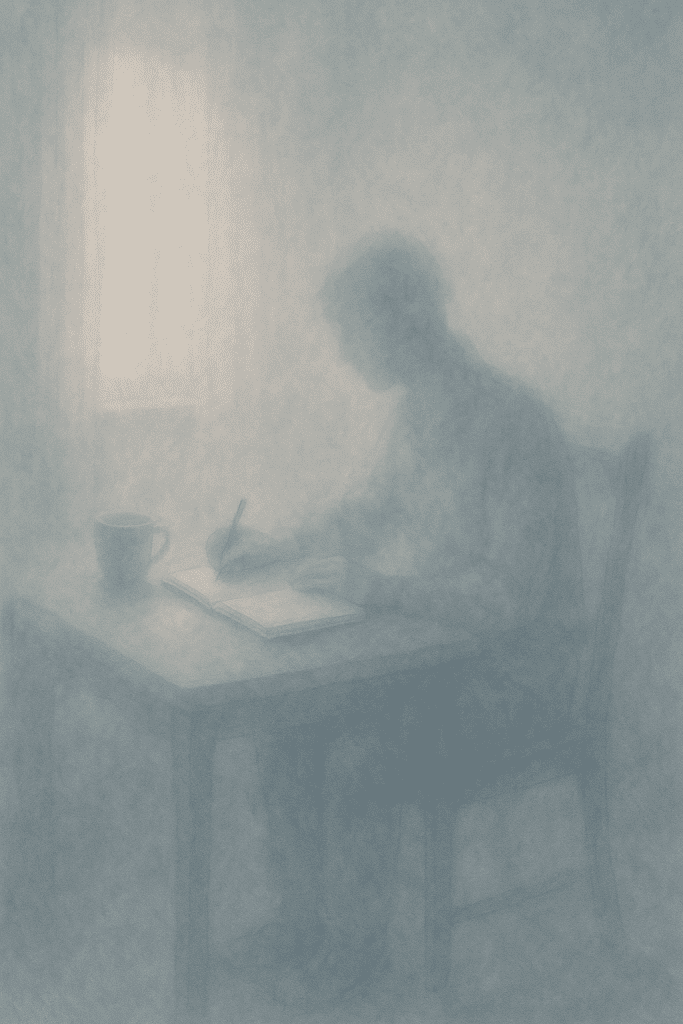
There’s a special kind of frustration that comes from trying to explain how you feel and coming up blank. Like your mouth and your heart are on different time zones or speaking different languages. As if your verbal skills have left the building! For people living with the effects of complex trauma, especially those who dissociate, that’s not just metaphor. It’s biology.
When the nervous system is under threat, the body’s main goal is to keep you alive. Long before you can say “I’m overwhelmed”, your brain might have already decided to shut down, freeze, or fly out of the room (even if your legs don’t move). In that moment, the verbal parts of the brain go quiet. Which is why, when someone asks “what happened?”, you might find yourself saying: “I don’t know.” You aren’t being difficult or avoidant, in that moment you just don’t know.
And yet, something happened. Your body knows. You just might not have the words for it, yet.
Writing into the silence
This is where writing can help. I don’t mean writing a memoir or keeping a gratitude journal (though those are fine too). I mean scribbling a few words on the back of an envelope, texting yourself a thought you didn’t realise you had, or writing a letter to someone you’ll never send. Writing without pressure. Writing without an audience.
The psychologist James Pennebaker’s research showed that people who wrote about emotional experiences for just 15 minutes a day had better immune function, lower stress levels, and fewer GP visits. But more than that, writing helped people make meaning out of things that previously felt chaotic or unspoken.
In trauma therapy, writing can become a bridge, a way to connect different parts of the self, particularly when verbal expression is difficult. Dissociation can leave us feeling fragmented, like different versions of us are living in different rooms of the same house. Writing lets them leave each other notes.
You might write something down and think, “I didn’t know I felt that way.” But it was there
all along. Sometimes, the hand knows before the mouth does.
Let it be messy
Some of the people I work with worry they’re doing it wrong. “Should I be writing about the trauma? Should it be positive?” There’s no correct way to write your way back to yourself. It doesn’t need to be tidy. It just needs to feel like yours.
It’s also okay to write things that don’t make sense. Your writing doesn’t have to be legible to anyone else. In fact, it might feel safer if it’s not. Writing can help bypass the inner critic, the part that says “don’t say that” or “you’re being dramatic.” It can give voice to things your body already knows but your conscious mind hasn’t caught up with yet.
And sometimes, reading something you wrote last week, you might laugh. Or cry. Or think, “Wow. I’ve survived a lot.” That, too, is healing.
So if talking feels hard, or like you keep hitting a wall, try writing. A sentence. A scrap. A storm of words that makes no sense until it does. It’s not cheating. It’s a perfectly valid way back to yourself.
